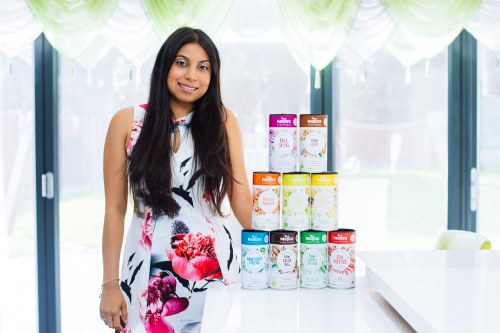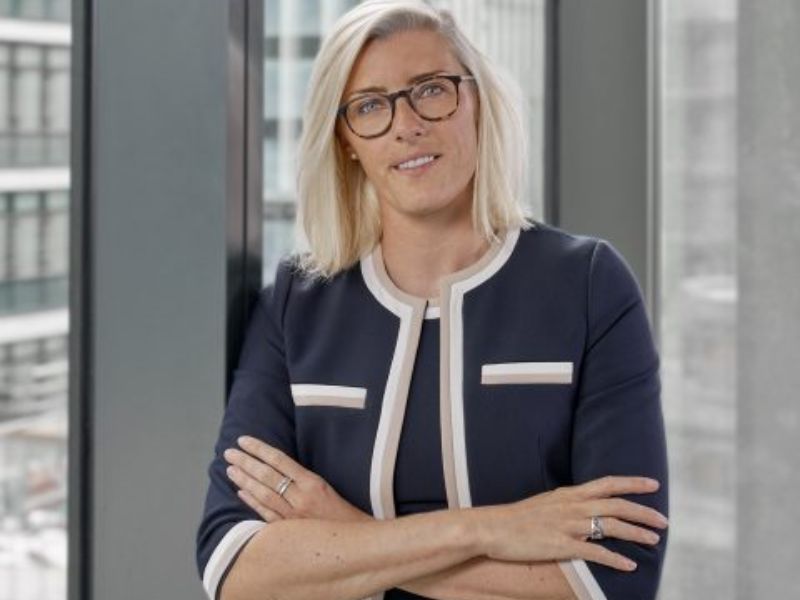
Julianne Ponan, is causing a stir in the health food world.
Having suffered from anaphylaxis since she was two years old, Julianne wanted to launch a range of “free from” foods with good nutrition. At just 22 years old, she acquired, via a Management Buy Out, Creative Nature, a superfood brand that was struggling with heavy losses and turned it around into profit within 24 months.
She has won numerous awards including the National NatWest Everywoman Artemis Award for Women Entrepreneurs, the Institute of Directors’ Young Entrepreneur of the Year award (London & South East), three awards at the FSB Surrey Business Awards for Young Person in Business, Real Life Entrepreneur and Overall Winner and Director of the Year at the Toast of Surrey Awards. She was recognised as a Retail Ambassador at the 2017 Worldpay Everywoman Awards and voted by the public as The Guardian’s Leader of the Year.
Julianne is also a mentor for Virgin Startup, keynote speaker and enjoys helping young entrepreneurs achieve their goals with particular focus in the food/retail industry.
What made you start a business at a young age?
I was actually working for a health food company and I knew the owners were keen to sell. I had my own vision for the business and wanted to put my own stamp on it. I didn’t really consider my age at the time as I felt confident that I could take the business on.
Why did you choose the superfood/wholefood sector?
I have always been interested in healthy foods due to my allergies and intolerances. I used to make my own cereal bars at home as I couldn’t find anything better on the market. I knew that if I could find a way to make them on a larger scale, others would love them too.
What were your experiences before your business venture?
I did a stint in investment banking and enjoyed the fast pace of the industry – I’m a numbers girl so anything to do with finance interests me. Before that was university. I think it’s really important to get some practical experience before running your own business so you know the basics such as how to do a VAT return, how to manage your cashflow, etc.
You have suffered from anaphylaxis from a young age, tell us more about how the condition affected you?
I have had the condition since birth and my parents tried to wrap me up in cotton wool but at a certain age they had to learn to trust me to look after myself. My parents refused to fly as they were concerned that someone would be eating nuts around me and that would trigger an allergic reaction – people don’t always realise that the nut particles travel through the air and therefore can still have a terrible effect. So as a result we were confined to holidays in the UK, France or wherever we could drive to. I also had to have a packed lunch at school and wasn’t allowed to go to parties or stay overs with my friends.
You acquired the Creative Nature via a management buyout… tell us more about the process?
The owners asked me if I would be interested in leading a management buyout and I discussed it with the others and we decided to go for it. I obviously did my due diligence beforehand and I knew that the company had significant losses (over £56,000). At the time its product range included incense, candles, statues and some superfoods and I knew that the business could be so much better than it was. Once I had acquired the business, I rebranded and trademarked the brand and set about adding the new free from products and removing other products that weren’t selling. I also had to let the existing management team go which was a hard decision to make but the right one for the future of the business. I bought in Matt, my boyfriend, as Operations Manager and set about turning the business around with no money, no experience and no contacts.
How did you find the investment process?
In the early days, we tried to crowdfund but it wasn’t successful. We had high hopes, strong numbers and dreams to launch into a supermarket within the next 6 months, but investors didn’t want to know and we failed to raise our £150k target. Comments like “you’re too young”, “unrealistic targets” and “just a little girl” didn’t deter us though, so we focused on proving them wrong.
What were some of the early pitfalls your encountered and how did you overcome them?
Getting trade credit from suppliers was the biggest problem as they just didn’t take me seriously or trust me because of my young age and I looked even younger than I was. Eventually I met one supplier at a trade show and after a long conversation he understood that I was serious and had a clear business plan who took a chance on us and offered us 60-day credit. We have since enjoyed an excellent working relationship so it is crucial to find suppliers who are the right fit for your business.
You have won quite a few awards, what did this recognition do for your business?
Award wins are a great way to get your brand in the press to raise awareness of your products. They also endorse your brand or products and so this lends great credibility in the eyes of your customers. Our products have won Great Taste and Quality Food awards which are important not only to our end consumers but also the supermarket and health store food buyers. I have also won awards as a young entrepreneur and female entrepreneur and this has led to numerous opportunities for me to build a credible reputation for Creative Nature.
Social media has fueled the growth the health and fitness sector, how has this assisted your business?
Social media is key for us. It allows us to talk to our customers directly and to see their likes and dislikes very quickly. We can target our campaigns at particular stores that we’re stocked in. It certainly allows us to build our brand awareness and trust – if people trust you on Social Media, they’re likely to buy your products.
How do you maintain a work life balance?
Well that’s difficult as any entrepreneur will tell you. I’m just about to take a two-week holiday, my first this year. But I know it’s essential as in the past when Matt and I didn’t take time out, we struggled and saw a serious drop in our performance. I love running my business so I’m happy to spend the time that it requires and also socially I tend to mix with other entrepreneurs and I love hanging out with them and hearing how they’re getting on.
Which entrepreneurs do you admire and why?
So so many but to name a few it would have to be Paul Lindley founder of Ella’s Kitchen. He started his business like mine in the kitchen and has grown it into a phenomenal success. I look to him for inspiration in how I manage my team and grow my business. Kanya King MBE is also an inspiration – I love her drive and ambition and how she didn’t take no for an answer when first trying to launch the MOBO Awards. I also admire Eric Ho and his commitment to volunteer work and giving back.
Where do you see the business developing over the next five years?
We will be focusing heavily on export growth. We are already exporting to Iceland, Switzerland and Dubai and intend to grow this substantially including North America. We will also be looking to increase our market share in the UK focusing on catering, airlines, cafes and delis.
How will BREXIT impact your business model?
It has already affected our business. Thanks to the weak pound, our costs for the raw materials that we import have increased. On the flip side, our product prices are more favourable now to our export customers.
You are a Virgin Start Up business mentor, how have you found advising new businesses?
I absolutely love advising start-ups and seeing them grow. I’ve worked with one mentee, who has a feminine hygiene care product, from prototype to actual product and I’m so proud that they will be launching the product in the Autumn.








